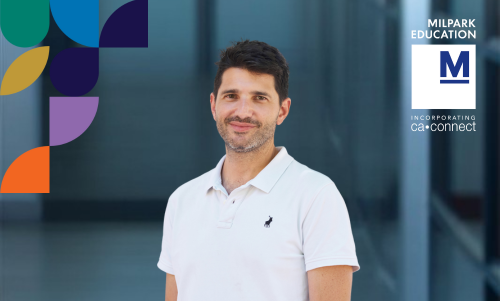
Preparing Tomorrow’s Chartered Accountants for Digital Success
The future of the chartered accountancy profession is digital. As automation, AI, and data-driven decision-making reshape business, tomorrow’s CAs need more than technical accounting expertise – they need core digital competencies to thrive.
Milpark Education, through its School of Professional Accounting and CA Connect, is equipping aspiring CAs with the digital fluency, adaptability, and ethical insight demanded by SAICA’s CA of the Future framework. By embedding digital skills into every stage of learning, Milpark ensures graduates are not only ready for today’s challenges, but confident leaders in a rapidly evolving profession.
![Umbraco.Cms.Core.Models.MediaWithCrops`1[Umbraco.Cms.Web.Common.PublishedModels.Image]](/media/zp4ltpb3/gareth-oliver.jpg)